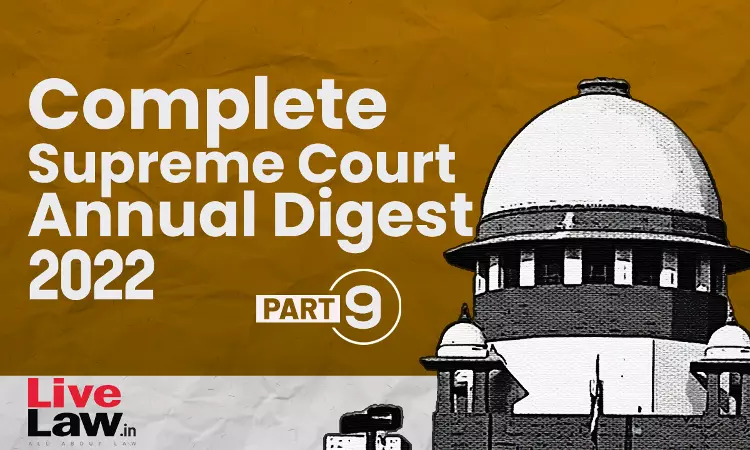- Home
- /
- Top Stories
- /
- Complete Supreme Court Yearly...
Complete Supreme Court Yearly Digest Part-9
LIVELAW NEWS NETWORK
21 Feb 2023 2:00 PM IST
PPayment of Gratuity Act, 1972Payment of Gratuity Act, 1972; Sections 2(e) and 13A - Payment of Gratuity (Amendment) Act, 2009 - Constitutional validity of the amendment to Section 2(e) and insertion of Section 13A upheld - The amendment with retrospective effect is to make the benevolent provisions equally applicable to teachers - It seeks to bring equality and give fair treatment to...
Next Story



